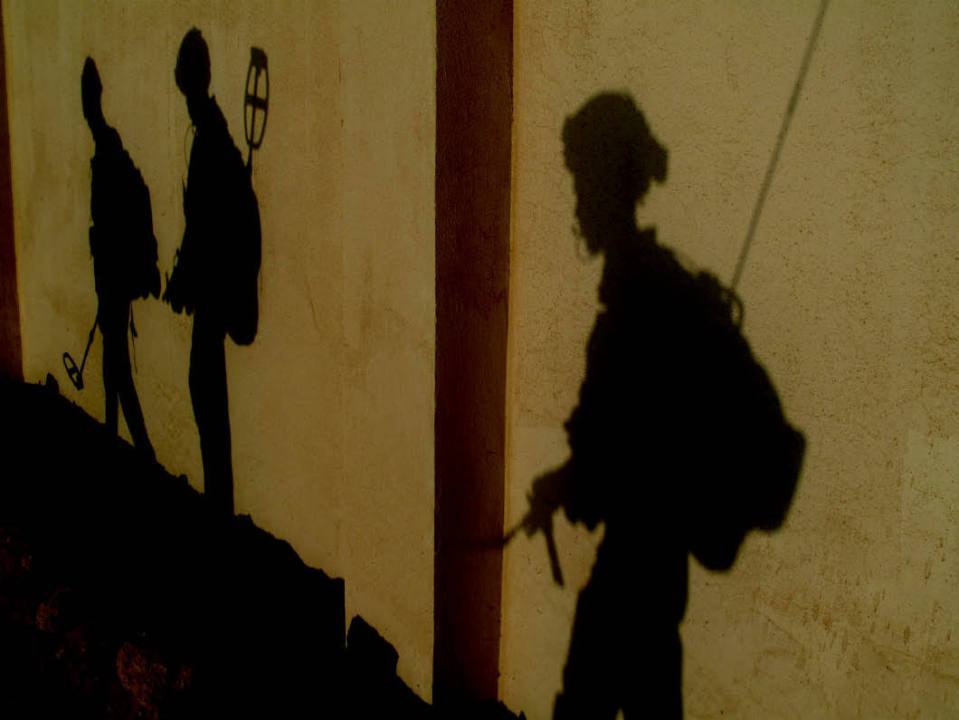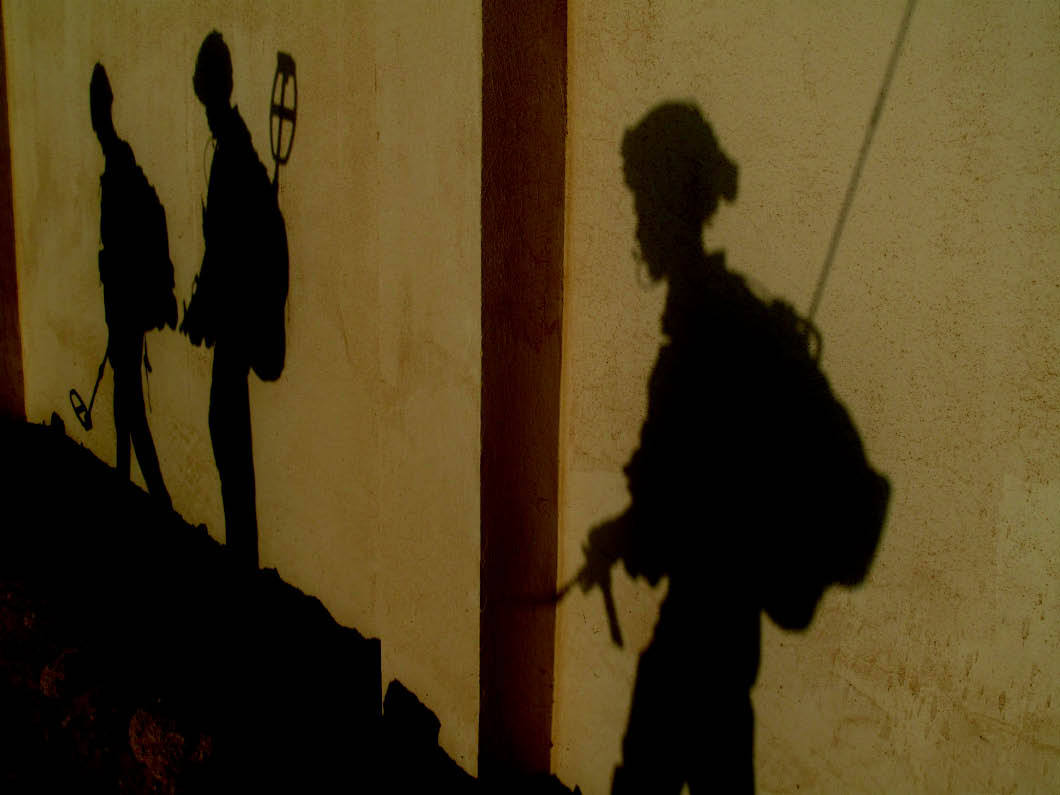There are more than 100,000 American and Allied troops in Afghanistan. That is, there are more than 1,000 troops for every suspected al-Qa’eda ‘operative’. Not for the first time in Afghanistan means, ways and ends appear to be out of kilter. There are more Nato troops than are needed to combat al-Qa’eda but not enough to build a proper, ordinary country. No wonder Afghanistan has become a grimly expensive halfway house — neither wholly occupied, nor treated with a light touch.
Tim Bird and Alex Marshall’s brisk, broad survey of the war is drily un- impressed by American strategy. It is sub- titled ‘How the West Lost its Way’, and its authors, who are academics — King’s College, London and Glasgow University respectively — imply that western policy has been based on a Micawberish view that, with sufficient persistance and perspiration, something will eventually turn up to solve, or at least pacify, the Afghan Question. It hasn’t.
Like most observers Bird and Marshall are long on criticism and shorter on solutions, but they are especially sceptical about the ‘clear, hold and build’ counter- insurgency doctrine currently favoured by the Americans. There is much clearing, plenty of holding and even some building. But to what purpose?
Instead, the authors suggest, President Obama should have listened to his Vice-President. Joe Biden’s preferred option of a smaller American force dedicated to counter-terrorist actions was not popular at the Pentagon, but it had the benefit of focusing attention on a goal that might actually be achieved without having to be redefined after the fact.
Osama bin Laden’s death may spur a reappraisal of American policy. Some members of Congress are beginning to call for the troops to return home sooner than the Pentagon presently deems possible. At some point too, someone will need to talk to the Taleban if there’s to be any kind of political solution to Afghanistan’s problems.
If Bird and Marshall offer the view from a Predator drone, cruising at 30,000 feet, Toby Harnden’s Dead Men Risen (the first edition of which was pulped by the MoD, as the author described in The Spectator on 12 March) is a boots-on-the-ground account of the Welsh Guards’ experiences in Helmand Province in 2009. It made me think of Dr Johnson’s quip: ‘Every man thinks meanly of himself for not having been a soldier’. He was right, but Harnden’s fine book also made me thankful I never joined the army.
Still stung by the loss of 32 Guardsmen aboard HMS Galahad during the Falklands War, the Welsh felt they had been offered a chance to prove themselves anew in Helmand province. Instead, they would lose their commanding officer, Lieutenant-Colonel Rupert Thorneloe, who became the most senior officer to have died in the field since the Falklands. Thorneloe, leading from the front and by example, was killed by an IED on 1 July 2009.
Such are the wages of leadership. Harnden’s is an account of a regiment at war; there is heroism aplenty, and great camaraderie, but also much squalor and horror. Scenes depicting the repatriation of dead soldiers and their funerals back home are desperately moving. So too, in their way, are the moments when fear and, on occasion, cowardice seep through the Guardsmen’s defences.
Asked to do too much with too little, the British army in Helmand found that failure became more than just another option. The government is often blamed for this, but the army must take some responsibility too. The steadily escalating Afghan campaign offered a chance to atone for the tactical defeat the army had suffered in Basra, which still rankled. In Iraq, the British were rescued by the Americans; they would do better in Afghanistan. That, at least, was the plan.
The reality has proved rather different. Half a commitment might be thought worse than none at all, yet British forces have never been properly equipped to handle the tasks assigned them. Fighting in terrain resembling the Normandy bocage that proved such a formidable obstacle in 1944, British soldiers struggled with now-infamous helicopter shortages and Bowman radios so unreliable their name was said to stand for Better Off With Map And Nokia.
Politicians who send troops into conflict, however, are not as cavalier as the media picture of lions led by donkeys like to suggest. Concerns about bringing everyone home alive are admirable; a war actually fought for the national interest would not be so (properly) squeamish. So Afghanistan is a curious kind of war, in which the aim is to avoid obvious defeat, not secure victory. A draw may then be reinterpreted as victory.
This has happened before. Every six months a new push or strategy is revealed, and twice a year the Taleban are on the brink of being routed once and for all. Yet it never quite happens. Thorneloe warned his superiors that Operation Panther’s Claw — 2009’s Big Push — was
becoming the typical [Operation] Herrick thing, where every tour there’s a big operation, you lose several people doing it and it does a certain amount of good but not really anything long-lasting.
‘I don’t want your fucking sympathy’, one officer tells Harnden. Men of War should be measured soberly, not pitied for their sacrifices or the traumas they suffer. Yet Afghanistan has been a chastening experience; soldiers who once believed in the mission return home unsure of its worth, or even if victory (however that might be defined) can be achieved.
Dead Men Risen is a serious work, far removed from the blood-and-thrills of the Bravo Two Zero school of military literary campaigning. Such books may grip but they do not engage. Harden’s does both.
This causes a problem for fiction. Patrick Bishop’s Follow Me Home is a breezy ‘novelisation’ of the British army at war. It is driven by plot, not character. Bishop’s publishers claim that this is the first novel of the Afghan war, but if so, it has already been eclipsed by events.
Much of the narrative is familiar: the squaddies are plucky, and stuff will always go wrong. Coincidences, improbable even by wartime standards, abound. Bishop is a journalist who has spent time in Afghanistan embedded with the Paratroop Regiment. That research does not always help his narrative. Jargon-stuffed prose and military verisimilitude are one thing; characters for whom the reader must care quite another.
None of Bishop’s soldiers is as realised or alive as Harnden’s depiction of Thorneloe and his men. An average novelist is bested by a superior journalist (a problem that afflicts the modern political novel too). Novelists contemplating projects set in Afghanistan might reflect that though likely to be more commercially attractive, the visiting soldier’s view of Afghanistan is neither as interesting nor as challenging as that afforded by a Pashtun or Taleban hero or anti-hero.
Since the Taleban were toppled in late 2001, the Afghan mission has sprawled and been redefined many times. At almost every stage, however, victories have turned to dust and defeats have been hailed as qualified successes. The lesson, if there is one, is that wars should be avoided, but if they must be fought, they should be fought properly or with at least some attention paid to means, ways and ends.








Comments